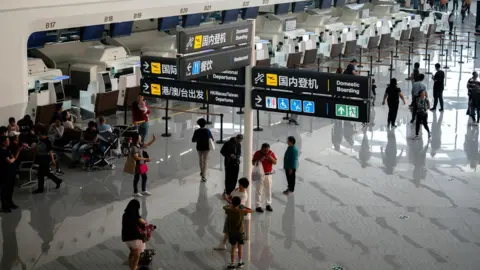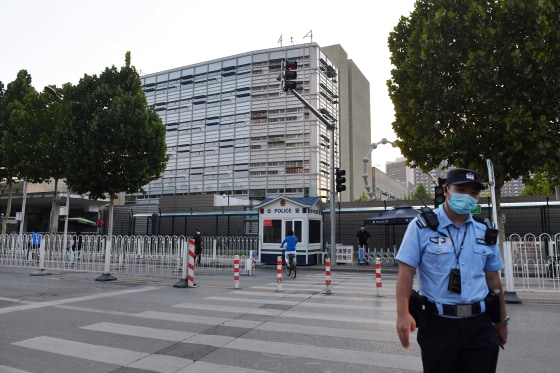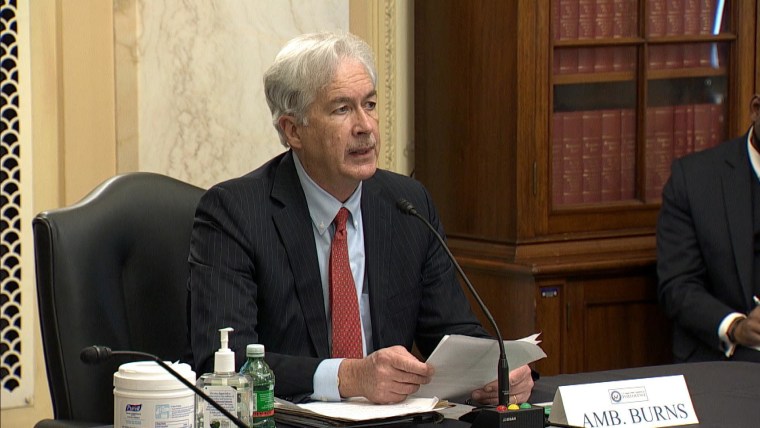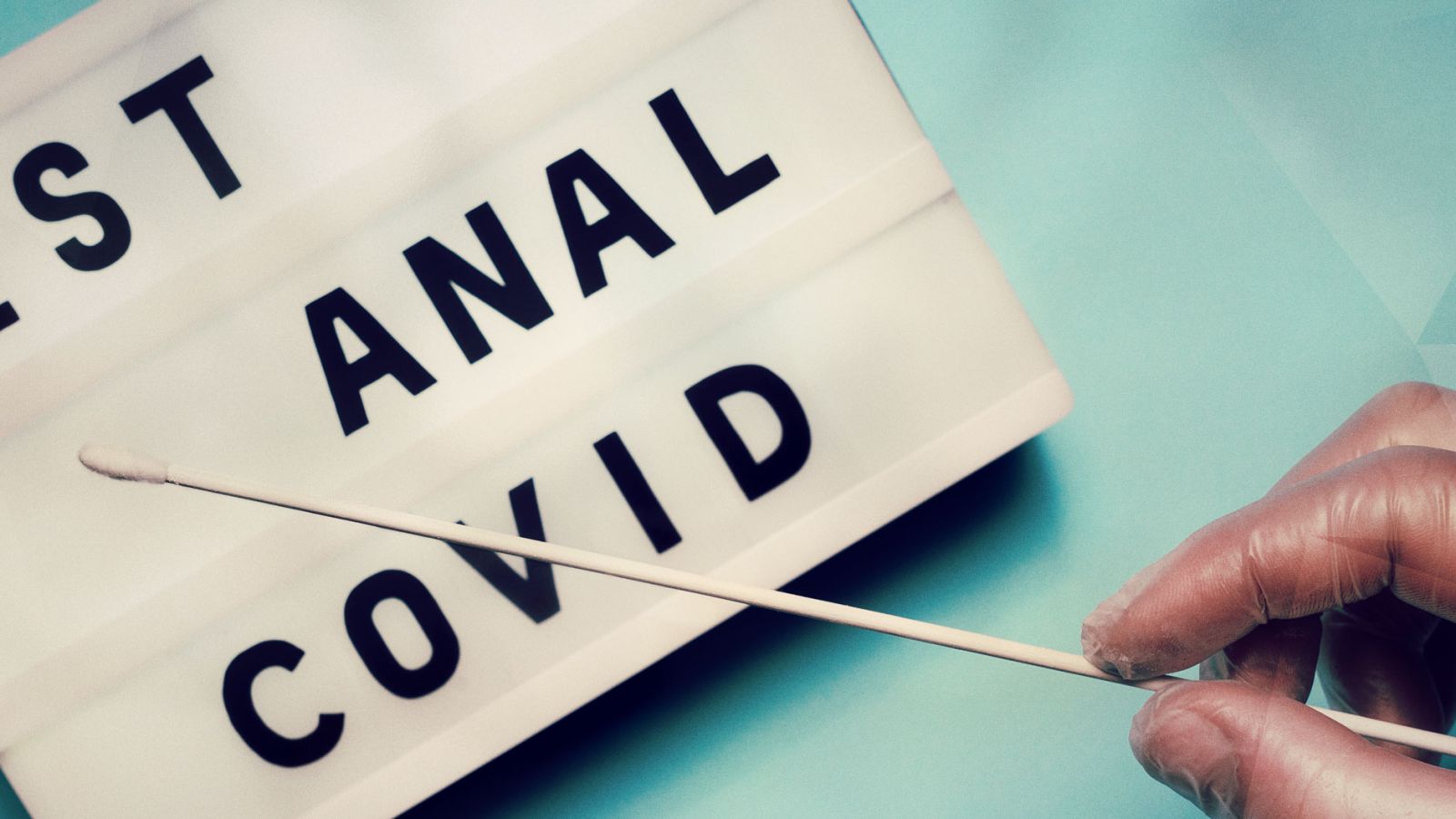People may test positive for SARS-CoV-2 in a rectal swab despite testing negative in a throat swab
People who test negative for SARS-CoV-2 in a throat swab could still have COVID-19. New research shows that the virus can colonise a person’s gut.
Aalborg University and North Denmark Regional Hospital, Hjørring.
New research shows that more than half the people who test positive for SARS-CoV-2 using a throat swab also have the virus in their gut. In addition, after some time some people may test negative for SARS-CoV-2 in a throat swab but positive in a rectal swab.
This suggests that people who test negative may still infect other people through their faeces, especially children or people in nursing homes, who often receive help to change diapers or incontinence pads or go to the toilet.
The discovery shows a potential route of transmission that not many countries have considered in their COVID-19 preparedness.
“We talk a lot about how we can prevent the transmission of SARS-CoV-2, so the fact that it is also present in the gut of some individuals may potentially affect not only the risk of transmission but also the disease trajectory,” explains a researcher behind the study, Suzette Sørensen, Associate Professor, Aalborg University and Senior Researcher, North Denmark Regional Hospital, Hjørring.
The research has been published in Frontiers in Medicine.
More than half tested positive in rectal swabs
The researchers examined the disease trajectory of 42 people hospitalised with COVID-19 and recently testing positive in a throat swab. Throat and rectal swabs were then collected from all participants.
Of the 42 participants who tested positive in a throat swab, 23 (54%) tested positive in the rectal swabs.
Suzette Sørensen says that this is comparable with data from studies in China.
Some participants tested negative for both swabs at the same time. Some tested negative first in the rectal swab and then the throat swab. Most interesting, however, is that some participants first tested negative in the throat swab and did not test negative in the rectal swab until many days later.
One person continued to test positive in the rectal swab for 29 days after a negative throat swab.
“This might lead to some transmission scenarios in which a person is considered negative for SARS-CoV-2 while being infected. For example, one can imagine situations in which infected and uninfected people are placed in the same room in a hospital without them or the personnel knowing that some are infected,” says Suzette Sørensen.
Suzette Sørensen also says that they found no difference in the severity of COVID-19 between those who tested positive and negative in rectal swabs.
One person with SARS infected an entire apartment building in 2003
One can imagine various scenarios in which infection can be transmitted from one person who would test positive in a rectal swab to another person.
For example, a child in childcare who needs a diaper changed or needs help on the toilet might infect an early childhood educator or other children.
The same problem can arise in nursing homes when people need help to go to the toilet or change an incontinence pad.
In both situations, a person may test negative in a throat swab but transmit the infection through faeces.
However, studies of this potential route of transmission are not unanimous, with some suggesting that it is possible and others not.
Previous coronavirus epidemics, such as the 2003 SARS outbreak in Asia, provide some evidence that coronavirus can be transmitted through faeces.
In the 2003 outbreak, one person with SARS-related diarrhoea supposedly infected a large number of people in an apartment building through the pipe system
“We do not know whether this applies to SARS-CoV-2, but examining this is sensible, so we have a full overview of how viruses can be transmitted. This may have implications for how future epidemics are combatted,” explains Suzette Sørensen.
Transmission may be greater in other countries
Fortunately, Denmark has relatively good regulatory control of hygiene and plumbing installations, so SARS-CoV-2 is unlikely to be transmitted to an entire apartment block.
This may differ in other countries, however, and according to Suzette Sørensen, carrying out further research on the potential for transmission when a person tests positive for SARS-CoV-2 in a rectal swab may therefore be important.
If the risk of transmission turns out to be very high, this should be considered when planning interventions to stop transmission.
In Denmark, the most relevant perspective of the new research is more closely related to the significance for the person infected. For example, whether testing positive for SARS-CoV-2 in a rectal swab for a long time after testing negative in a throat swab affects the risk of long COVID is still unclear.
“This may be worth examining because it is a crucial outcome,” concludes Suzette Sørensen.
Chinese cities using anal swabs to screen COVID-19 infections
January 27, 20213:58 PM GMT+1Updated 4 years ago
BEIJING (Reuters) – Some Chinese cities are using samples taken from the anus to detect potential COVID-19 infections as China steps up screening to make sure no potential carrier of the new coronavirus is missed amid regional outbreaks and ahead of the Lunar New Year holidays.
A throat swab on a 52-year-old man in Weinan, a city in northern Shaanxi province, showed negative result after the person showed symptoms such as coughing and appetite loss, a city official said on Wednesday, but he tested positive using nose and anal swabs.
Advertisement · Scroll to continue
The person, who had been put in a centralised facility for medical observation as a close contact of another carrier earlier this month, was then confirmed as a COVID-19 patient, the official told a news conference.
Anal swabs require inserting a cotton swab 3 to 5 centimetres (1.2 to 2.0 inch) into the anus and gently rotating it. Last week, a Beijing city official said that anal swabs were taken from over 1,000 teachers, staffers and students at a primary school in the city after an infection had been found. Their nose and throat swabs and serum samples were also collected for testing.
Advertisement · Scroll to continue
Additional tests using anal swabs can avoid missing infections, as virus traces in faecal samples or anal swabs could remain detectable for a longer time than in samples taken from upper respiratory tract, Li Tongzeng, a respiratory and infectious disease doctor in Beijing city, told state TV last week. He added that such samples are only necessarily for key groups such as those under quarantine.
Stool tests may be more effective than respiratory tests in identifying COVID-19 infections in children and infants since they carry a higher viral load in their stool than adults, researchers at the Chinese University of Hong Kong (CUHK) had said in a paper published last year.
Reporting by Roxanne Liu and Ryan Woo, Editing by William Maclean
Our Standards: The Thomson Reuters Trust Principles.
Covid: Japan asks China to stop anal tests on its citizens
1 March 2021

Japan has asked China to stop taking anal swab tests for Covid-19 on its citizens when they enter the country.
Some have complained that the procedure caused them “psychological distress”, officials say.
China, which has largely brought the virus under control, started carrying out anal swabs in January.
Last week, it denied it had required US diplomats to undergo such tests after US media reported some had complained about the procedure.
“Some Japanese reported to our embassy in China that they received anal swab tests, which caused great psychological pain,” Chief Cabinet Secretary Katsunobu Kato said.
It was not known how many Japanese citizens received such tests, he added.
The tests are used on some of those quarantined or entering China, he also said, noting their use “has not been confirmed anywhere else in the world”.
China had not so far responded to the request, he said, adding that the Japanese government had made the request through the embassy in Beijing.
Some Chinese cities have introduced anal swabs, with local experts claiming they can “increase the detection rate of infected people”.
At the time of their launch, state media reported those tests had been “controversial among experts”, and that they were far less efficient than tests in the upper respiratory tracts.
The existing tests were preferred, as they believe most people contract the virus orally, they said.
The tests involve inserting a cotton swab 3-5cm (1.2-2.0 inches) into the anus and gently rotating it. From fear to freedom: China’s painful year fighting Covid-19
China denies requiring anal swabs from US diplomats
China arrests leader of fake vaccine scam
U.S. diplomats in China subjected to anal swab testing for Covid-19, State Department says
The U.S. had “received assurances from China that the tests were done in error,” a Department of State spokesperson said.
Feb. 25, 2021, 8:47 PM GMT+1

U.S. diplomats in China were subjected to anal swab tests for Covid-19, a Department of State spokesperson confirmed Thursday, adding that a protest had been lodged with the Chinese Ministry of Foreign Affairs.
The United States had received assurances from China that the tests were done in error and that diplomatic personnel were exempt from this specific testing requirement, the spokesperson said.
“The Department is committed to guaranteeing the safety and security of American diplomats and their families while preserving their dignity, consistent with the Vienna Convention on Diplomatic Relations, as well as other relevant diplomatic law provisions,” the spokesperson said.
The story was first reported by The Washington Post.
However, Zhao Lijian, a spokesman for the Chinese Ministry of Foreign Affairs, told a news conference Thursday that he had checked with his colleagues and as far as he knew, “China has never asked U.S. diplomats stationed in China to have anal swab tests.”
Some health experts say the anal swab tests are more accurate than nasal and mouth swabs to detect virus traces.

Anal swabs could be more effective because traces of the virus stay in fecal matter for a longer time than those in the respiratory tract, Dr. Li Tongzeng, a respiratory diseases doctor in Beijing, told Chinese state television last month.
Ahead of the Lunar New Year holidays earlier this month, some Chinese cities used anal swab samples on people to detect potential infections during stepped-up screenings, after a spate of regional outbreaks.
In mainland China, 89,864 Covid-19 cases have been confirmed since the outbreak began, while the death toll has remained unchanged for some time at 4,636 people, according to data from the country’s National Health Commission.
Relations between China and the U.S. grew tense under former President Donald Trump who criticized the world’s second largest economy over trade, the outbreak of the pandemic, Beijing’s treatment of Hong Kong protesters and itsUighur Muslim minority.
Download the NBC News app for full coverage of the coronavirus outbreak
On Wednesday, President Joe Biden’s nominee to be director of the CIA, former ambassador William Burns, 64, told a Senate committee he saw competition with China — and countering its “adversarial, predatory” leadership — as the key to U.S. national security.
Biden spoke with Chinese President Xi Jinping by phone for the first time since he took office, earlier this month.
The White House said in a statement at the time that Biden had raised “fundamental concerns” about Beijing’s “coercive and unfair economic practices, crackdown in Hong Kong, human rights abuses in Xinjiang, and increasingly assertive actions in the region, including toward Taiwan.”
The statement also said the two leaders discussed countering the Covid-19 pandemic and the “shared challenges” of climate change and global health security.
Reuters contributed to this report.Can we trust China claims of virus success?
